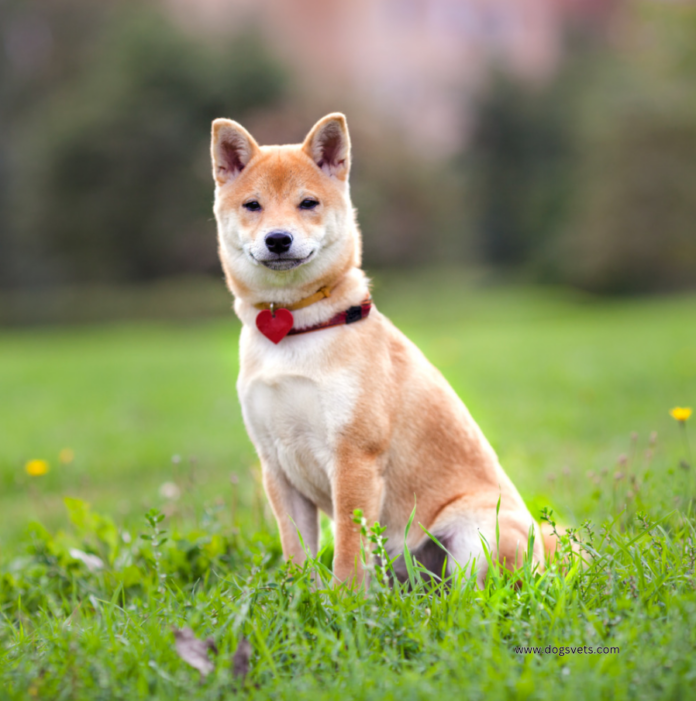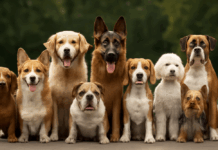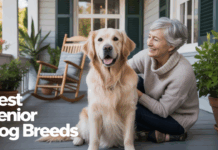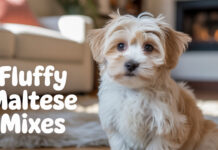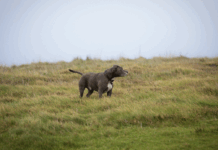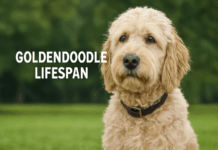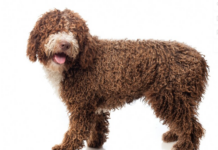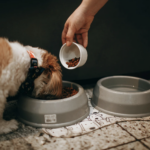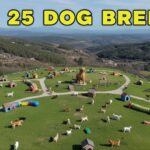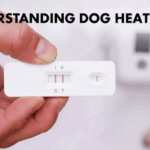Last Updated on September 18, 2024 by Dogs Vets
Is a Shiba Inu Dog a Good Family Pet?
Shiba Inus can be good family pets, but they come with specific considerations that potential owners should keep in mind. Here’s a breakdown of their characteristics, advantages, and challenges as family companions.
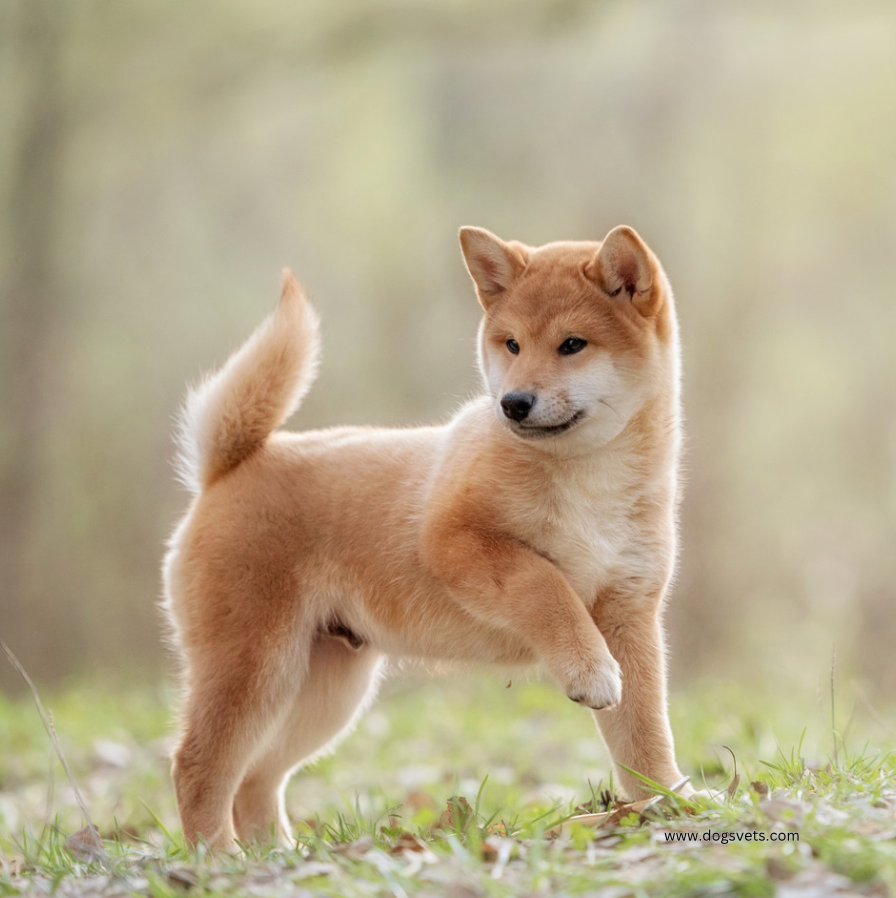
Shiba Inu: Facts, Advice, and Expert Tips
The Shiba Inu is an ancient breed that combines intelligence, loyalty, and agility, making it a popular choice for experienced dog owners. With its fox-like appearance, confident stance, and rich history as a hunting dog, this breed stands out for its charm and independence.
Whether you’re considering adding one to your family or want to learn more about this remarkable breed, this guide covers everything from temperament to care tips.
Vital Stats of Shiba Inu
- Size: Small to medium (34-40 cm in height)
- Coat: Thick double coat
- Exercise Needs: 1-2 hours daily
- Life Expectancy: 12-15 years
- Breed Group: Spitz-type breed
- Temperament: Loyal, alert, lively, independent
Shiba Inu Temperament & Personality
The Shiba Inu temperament is known for being confident, alert, and highly loyal to its owners. Despite its affectionate nature, the Shiba Inu also has a strong independent streak, making it essential for owners to establish clear boundaries early on. As a breed with strong prey instincts and territorial tendencies, this dog thrives in environments where they feel mentally and physically stimulated.
Key Personality Traits:
- Loyal and Alert: Forms strong bonds with its owners and is always on guard.
- Independent Nature: They can be territorial and are best suited for homes with no small children or inexperienced dog owners.
- Playful and Energetic: Shibas are highly curious and enjoy being involved in home activities, though they may require firm leadership.
Training & Exercise for Shiba Inu
Given their high intelligence and strong-willed nature, Shiba Inus can be challenging to train. They require consistent, positive reinforcement training methods to avoid testing boundaries.
Training Tips:
- Recall Training: Given their hunting instincts, off-leash activities should be in secure areas. Recall training is crucial as they are prone to chase after moving objects.
- Mental Stimulation: Shibas need daily mental challenges to prevent boredom, which can lead to destructive behaviors.
- Exercise Needs: Ideally, Shibas require at least 40-60 minutes of exercise per day, which includes both physical activities and problem-solving games.
Game Ideas:
- Hunting for Food: Stimulate their hunting instincts by hiding food treats around the garden.
- Ball Games: Shibas love chasing, so engaging them in ball games improves recall training and satisfies their active nature.
Shiba Inu Grooming Needs
Shibas have a thick double coat that sheds heavily, particularly in spring and autumn. Grooming is essential for maintaining their coat’s health and minimizing shedding.
Grooming Routine:
- Brushing: Weekly brushing is required, with more frequent brushing during heavy shedding periods.
- Coat Colors: The Shiba Inu comes in various colors, including red, white, sesame, and black and tan.
- Self-Grooming: Like cats, Shibas are known for their cleanliness and are often seen self-grooming.
- Oral and Ear Care: Regular brushing of teeth and checking ears for wax buildup can prevent infections.
Nutrition & Feeding Advice
Feeding a Shiba Inu the right diet is essential to maintaining their compact body shape and energetic lifestyle. As a small, active breed, they thrive on high-quality dry dog food formulated for small breeds.
Nutritional Needs:
- Balanced Diet: Ensure the dog food contains appropriate levels of protein, vitamins, and minerals.
- Portion Control: Since Shibas are food-motivated, it’s crucial to measure portions to avoid overfeeding.
- Healthy Treats: Incorporate nutritious treats into their diet to maintain weight and satisfy their love for food.
What to Know Before Adopting a Shiba Inu
Adopting a Shiba Inu comes with responsibilities. While they are a great companion for experienced owners, their stubborn and independent nature makes them less suitable for first-time owners or homes with small children.
Important Considerations:
- Exercise & Stimulation: Shibas need daily physical and mental exercise to stay happy and prevent boredom.
- Escape Artists: Their curious nature makes them adept at finding ways out of secure spaces, so ensure fences and gates are escape-proof.
- Experienced Owners: Shibas do best in homes with owners who can establish clear, non-aggressive leadership roles.
- Regular Grooming: Be prepared for regular brushing to control shedding, especially in spring and fall.
Responsible Shiba Inu Breeding Practices
Breeding Shiba Inus requires careful consideration and a commitment to preserving the health and temperament of the breed. Here are some key aspects to focus on when breeding Shiba Inus responsibly:
Health and Genetics
- Conduct thorough genetic testing on both parent dogs to screen for common health issues like hip/elbow dysplasia, eye disorders, and autoimmune thyroiditis.
- Breed only dogs that are free of genetic defects and have been certified by veterinary specialists as healthy for breeding.
- Maintain detailed pedigree records to monitor bloodlines and avoid inbreeding.
Temperament and Socialization
- Select parent dogs with excellent temperaments that exemplify the Shiba Inu’s boldness, alertness and good nature.
- Socialize puppies extensively from a young age to ensure they are well-adjusted and comfortable around people, animals and new environments.
- Use positive reinforcement training methods to instill good manners and a willingness to please in Shiba Inu puppies.
Appearance and Conformation
- Breed for the Shiba Inu’s distinctive features like the fox-like face, pointed ears, thick double coat and curly tail.
- Aim to maintain the breed standard in terms of size, proportions, and movement.
- Avoid exaggerated features or traits that could compromise the dog’s health or functionality.
Responsible Placement
- Screen potential buyers carefully to ensure Shiba Inu puppies are going to responsible, committed owners who understand the breed’s needs.
- Provide new owners with a health guarantee, a copy of medical records, and educational materials about Shiba Inu care and training.
- Include a spay/neuter contract for any puppies not intended for show/breeding to prevent accidental litters and promote responsible pet ownership.
Ethical Business Practices
- Be transparent about health testing, pedigrees, and any issues in the breeding program.
- Price puppies fairly to cover expenses without profiting excessively from breeding.
- Provide a health guarantee and take back any Shiba Inu you bred if the owner can no longer keep them.
By prioritizing health, temperament, appearance and ethical practices, responsible Shiba Inu breeders can produce puppies that are excellent representatives of the breed and make wonderful lifelong companions. Careful selection of parent dogs and ext
Сиба ину это одна из японских пород. Эти собаки небольшие по размеру и изначально были выведены для охоты. Сейчас их любят за милую внешность.
Вот, например, популярный в твиттере сиба ину Марутаро @marutaro2000 во время “дрессировки”https://t.co/dbFSUXRLFo
— 🇯🇵Японское обозрение (@ruJapanObserver) February 26, 2019
FAQs about Shiba Inu
Are Shiba Inus Good Family Dogs?
Shiba Inus are loyal but may not be ideal for homes with small children due to their independent and sometimes impatient nature. Supervision is always recommended around kids.
How Big Do Shiba Inus Get?
Shiba Inus typically reach a height of 34-40 cm and are considered small to medium-sized dogs.
Are Shiba Inus Good with Other Pets?
They can coexist with other pets but may need supervision around smaller animals due to their hunting instincts.
How Much Exercise Do Shiba Inus Need?
Shibas need 40-60 minutes of exercise daily, including walks and problem-solving activities to keep their minds sharp.
What Type of Coat Do Shiba Inus Have?
Shibas have a thick, double coat that sheds year-round, requiring regular grooming.
References
Facts Check
We hope you enjoyed this article… What are your thoughts on Shiba Inu Dog?
Please feel free to share this article!
